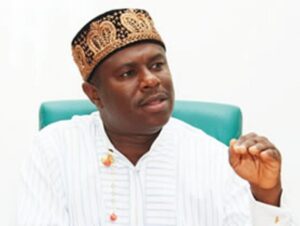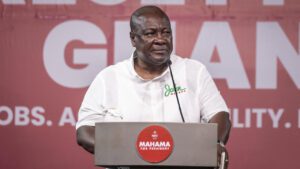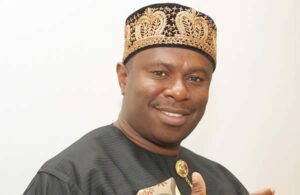Sustaining the momentum of hope
By Dakuku Peterside
Every new marriage comes with some level of excitement. This may be due to love, lust, anticipation, or newness. The everyday drudgery of living together and following the routines of life stifles excitement, and soon realities of marriage dawn on the couples. Suddenly, the marriage mates that were madly in love before and immediately after the marriage begin to face “tribulation in the flesh”. The excitement wears off if we do not make a deliberate effort to sustain it.
Marriage requires much conscious effort for the excitement and joy to last. President Bola Tinubu, by design or accident, has sparked this feeling of excitement and hope in Nigerians. He has made consequential decisions that may bring sustainable results in the long term but pains in the short term, yet Nigerians have accepted it. The international community hails the President and is rightly expectant.
The flicker of hope and excitement which the President has ignited rests on three legs: first, the major policy choices and decisions reflect much anticipated national priorities; Second, the activity pace of the new President, as I pointed out in this column last week, is faster than the previous eight years. Third, the national spread of appointments made so far reflects our national diversity. For now, the optimism is a function of its departure from the Buhari era’s pace, content and direction.
Unfortunately, but factual, some of these policy choices and decisions may inflict short-term pains on the citizens. Electricity tariff will go up from July 1, petrol subsidy is gone, with the likelihood of skyrocketing inflation in an already adverse inflation regime. Dual foreign exchange rascality is in check, and those who benefited from it are not fighting back yet, and the reality is that new imports will reflect the current value of the Naira and will add to inflationary pressures. Students loan scheme means tertiary education tuition will most likely go up, so students will pay something close to the actual value of obtaining an education. These cannot be good news for Nigerians in ordinary times, but excitement is in the air because we are in a new marriage.
Nigerians know there are no quick fixes, so they are patient with the President, believing that their new husband, Mr President, is acting out of love and knows what he is doing to fix a broken system. This marriage is anchored on a renewed hope for a better Nigeria, and to sustain this hope, Nigerians must share the vision of Mr President and clearly understand where he is taking Nigeria. No matter the excruciating pain of Mr President’s new policies in the short run, if he makes a deliberate effort to carry the nation along and keep their hope burning ever bright, they will continue to understand, at least. But this cannot be for too long.
In a few months, the amorous love affair between Nigerians and Mr President will start facing the test of time. The goodwill Mr President is enjoying will begin to wane, and the reality of dealing with the enormous challenges of Nigeria and the complexities and intricacies of managing a behemoth, Nigeria, will confront Mr President. Therefore, there is a need to sustain this momentum of hope and at least deliberately work to extend the excitement of these early times.
To sustain this momentum of hope, Mr president must do long-range planning and be deliberate not to inflict further short-term pains on Nigerians. He needs to acquire elite acceptability and popular acclaim quickly.
First, he needs policies that renew and strengthen the middle class.
Second, he must alleviate the consequences of tough economic choices in the areas that touch the masses: food, health, education, and transportation. Managing the immediate fallout of the excellent policies Mr president churned out in his first month in office is crucial. The new relationship between Mr President and Nigerians is formed at this crucible. But a few factors will shape this new phase of the government, and Mr president must pay attention to them.
Beyond creating policies that will quickly alleviate the pain of the masses due to recent policy choices, Mr President needs a cabinet that will give Nigerians hope – a cabinet of competent people with character who can deliver on urgent national priorities! He has a choice in the composition of his cabinet, either a development team, a political team, or a mix of both.
A development team will advance the course of the President; a political team will dissipate the President’s energies on political manipulation. A balanced or mixed team can achieve developmental goals and political rightness without compromising results and value addition.
The President’s cabinet is like a gathering of medical doctors and health experts to cure sick Nigeria. It is crucial that Nigerians, like the wife in the marriage, must trust the competence and abilities of the team to fix sick Nigeria.
Therefore, the competence and character of the President’s cabinet will animate hope in Nigeria in the coming days. Nigerians must see the vitality, vibrancy, and intellectual dexterity of new cabinet members and believe they are the right team for embarking on serious surgical operations in sick Nigeria.
Nigerians are victims of failed promises and dashed hopes in the past. Their patience is very slim, and they can quickly and easily lose it without seeing results. Promises and rhetoric no longer bamboozle Nigerians of today, and social media platforms have democratised opinion and given access to voices that are critical and hard to manage.
Mr President must build a popular base by addressing hunger and poverty in the short term, at least to alleviate the pain of the majority, while creating medium- and long-term programmes that will improve the living standards of many Nigerians.
Providing the basics – affordable food, excellent and affordable medical care, and sound and affordable education, is what most Nigerians are expecting the government to do. Inflation is execrating and exacerbating and throwing millions of Nigerians into multi-dimensional poverty. Efforts towards stemming the tides of poverty and food insecurity will help sustain the hope of Nigerians in this government.
Mr President must build elite consensus on the country’s direction, acknowledging that the elite is part of the country’s problem. The rentier system that has been in place in Nigeria favours the elite class, and the President must convince them to join him in building a system that is against their narrow self-interest. There is no gainsaying that the Nigerian elite has had a strangling hold on Nigeria, and it is time it stopped. Mr President must fight against the morally bankrupt elitism of Nigeria and build a consensus to salvage Nigeria. The President’s body language and actions must always show that change has come, and it is not business as usual.
Furthermore, our President should be considering the practical steps beyond the usual rhetoric he will take to attract Foreign Direct Investment (FDI) to ramp up opportunities for job creation and mitigate unemployment. The inflow from foreign direct investment impacts the exchange rate and the value of the Naira. Mr President, the liberalisation of the monetary regime and unification of exchange rates has created an enabling environment for the inflow of FDI, and this must start happening fast to cushion the supply dynamics of the Dollar and stop the eroding of the value of the Naira that will dissipate the import-oriented economy we have.
President Bola Ahmed Tinubu must lead Nigeria towards greater productivity, which must be at the core of his economic agenda. Nigeria’s economy can only grow if we increase our productivity. The President must tackle the challenges impeding productivity, such as power problems, insecurity, a stifling business environment, and poor investment in science and technology. No magic wand can bring Nigeria out of its current economic quagmire. It must produce more goods and services for consumption locally and export. Productivity increases our GDP, strengthens our economy, and improves Nigerians’ living standards. Through his actions and policies, the President must show Nigerians that he is pro-productivity and laying the foundation for an industrialised Nigeria that will be the industrial hub of sub-Saharan Africa.
A further critical indicator of widespread acceptance would be how quickly Mr President restores peace and security throughout the country. The public must see and feel an innovative approach to internal security. Kidnapping, school abductions, assassinations, secessionist clamour, and herders vs farmers clashes must end or significantly abate. How the President quickly stems corruption, creates an enabling environment that enhances service delivery, and ensures insecurity in the next 12 months will define his Presidency.
Sustaining the momentum of hope in Nigeria is not just the work of Mr President but requires collective efforts from various stakeholders, including the government, civil society organisations, communities, and individuals. However, the President is the father of the country and must provide leadership in fostering hope and positive change in Nigeria.
To instil and maintain hope in Nigeria, the President must work towards ensuring transparent, accountable, and effective governance, fostering sustainable economic growth, reducing poverty, investing in education and skills development, developing, and maintaining robust social infrastructure, empowering young people and women, building strong and empowered communities, and cultivating international collaboration and partnerships.
Many marriages go on to last a lifetime. In successful marriages, the marriage mates build mechanisms for renewing their love, hopes and excitement. Mr President is an experienced married man. He understands his new marriage with Nigeria and will navigate the multiple nuances of this new relationship. However, what he does in the next few months will define the character and legacy of his Presidency.




